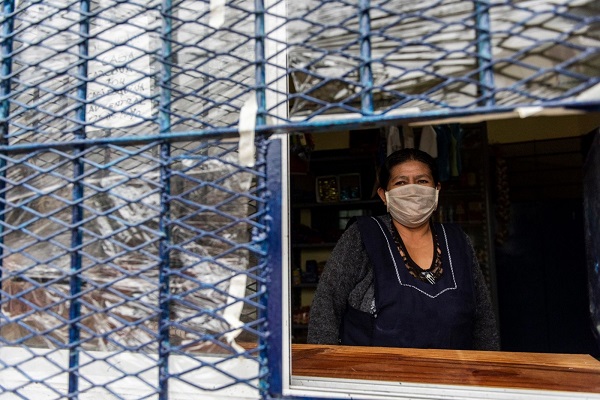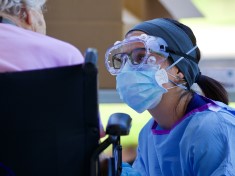-
Women, Race, and COVID-19: A Conversation with Representative Alma Adams
›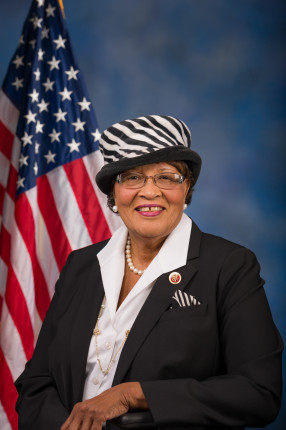
“The pandemic has shown us in the starkest terms how wide the gaps are in health outcomes between Black and White America and between men and women,” said Representative Alma Adams (D-NC-12) at a recent Wilson Center event on women, race, and COVID-19 in the United States. “COVID-19 has revealed what the Black community and communities of color have known for a long time, health outcomes are further compounded by systemic and structural racism,” said Rep. Alma Adams. And COVID-19 has exposed what women have known for a long time. Gender inequality exists, it threatens economic empowerment, and it increases vulnerabilities.
-
Against My Will: Harmful Practices Threaten Gender Equality Worldwide
›
“Our world is grappling with the COVID-19 pandemic and also coming to terms with systematic racism and oppression that black communities and communities of color continue to experience in the United States and in other parts of the world,” said Sarah Craven, Director of the Washington, D.C. office at the United Nations Population Fund (UNFPA) at a recent webinar launching UNFPA’s 2020 State of the World’s Population Report. This year’s report, titled Against My Will, covers three widespread practices that violate human rights, but are still accepted in many cultures—son preference, child marriage, and female genital mutilation/cutting (FGM/C).
-
COVID-19 Could Have Devastating Effects on Adolescents’ Sexual and Reproductive Health and Rights
›
In just a single year, a 10 percent decrease in sexual and reproductive health services in low- and middle-income countries could lead to another 49 million women with unmet need for contraception, according to Guttmacher Institute estimates from April 2020. Other possible effects include another 15 million unintended pregnancies, another 28,000 maternal deaths and 168,000 newborn deaths due to untreated complications, and another 3 million unsafe abortions and 1,000 maternal deaths due to unsafe abortions. The implications are staggering in terms of unmet needs, unintended pregnancies, unsafe abortions, and maternal and newborn deaths in 132 countries that are home to more than 1.6 billion women of reproductive age (15–49 years).
-
Non-Communicable Diseases and COVID-19: A Conversation With Dr. Belén Garijo and Dr. Felicia Knaul
› “NCDs have raised the risk of and the severity of the COVID-19 infection,” says Dr. Belén Garijo, Executive Board Member and CEO of Healthcare at Merck KGaA Darmstadt, Germany, in this week’s Friday Podcast. Women living with NCDs like cardiovascular disease, hypertension, cancer, mental health disorders, multiple sclerosis, and diabetes, have an increased risk of severe complications and death from COVID-19. “When you take a look at the mortality rate for one million inhabitants, you see a lot of diversity, and what has been consistent amongst all the countries is the association between severity of the infection and underlying diseases,” says Garijo.
“NCDs have raised the risk of and the severity of the COVID-19 infection,” says Dr. Belén Garijo, Executive Board Member and CEO of Healthcare at Merck KGaA Darmstadt, Germany, in this week’s Friday Podcast. Women living with NCDs like cardiovascular disease, hypertension, cancer, mental health disorders, multiple sclerosis, and diabetes, have an increased risk of severe complications and death from COVID-19. “When you take a look at the mortality rate for one million inhabitants, you see a lot of diversity, and what has been consistent amongst all the countries is the association between severity of the infection and underlying diseases,” says Garijo. -
The Unseen Side of Pregnancy: Non-Communicable Diseases and Maternal Health (New Report)
›
Around the world, approximately 18 million women of reproductive age die each year because of non-communicable diseases (NCDs), and two in every three deaths among women are due to an NCD. In fact, NCDs have been the leading cause of death among women globally for at least the past 30 years. And yet, women’s specific needs are often excluded from conversations about NCDs. They are underrepresented in clinical research and the effect of NCDs on women in particular is rarely considered. NCD-related symptoms during pregnancy are commonly misinterpreted or dismissed by clinicians.
-
Highlights from COVID-19: Magnifying the World’s Inequities
› COVID-19 has wreaked havoc the world over, and recent data shows that the hardest hit will be the world’s women and girls and populations impacted by racism and discrimination. This week’s Friday Podcast highlights remarks from a recent Wilson Center event sponsored by EMD Serono, the biopharmaceutical business of Merck KGaA, Darmstadt, Germany in the United States and Canada, on the impact of COVID-19 on race and gender inequities.
COVID-19 has wreaked havoc the world over, and recent data shows that the hardest hit will be the world’s women and girls and populations impacted by racism and discrimination. This week’s Friday Podcast highlights remarks from a recent Wilson Center event sponsored by EMD Serono, the biopharmaceutical business of Merck KGaA, Darmstadt, Germany in the United States and Canada, on the impact of COVID-19 on race and gender inequities. -
Pandemic of Violence: Protecting Women during COVID-19
›Covid-19 // Dot-Mom // From the Wilson Center // May 27, 2020 // By Anya Prusa, Beatriz García Nice & Olivia Soledad
COVID-19 is having a profound impact on Latin American women. Gender-based violence increased drastically after governments imposed lockdowns, leaving policymakers and law enforcement scrambling to prevent attacks. Latin America was already one of the most dangerous regions for women, with the highest rate of sexual violence and some of the highest femicide numbers in the world. The Economic Commission for Latin America and the Caribbean registered 3,529 femicides in 2018, or one woman killed every two hours due to her gender. For many women living through the coronavirus pandemic in Latin America, the greater health risk might be staying home.
-
Highlights from the First-Ever State of the World’s Nursing Report
›
The year 2020 has been designated as the Year of the Nurse and the Midwife by the World Health Organization. In April 2020, the World Health Organization (WHO), International Council of Nurses, and Nursing Now, published the first-ever State of the World’s Nursing Report. This week’s Friday Podcast highlights remarks from a recent Wilson Center event on the report’s findings and recommendations, gender implications in the health workforce, and the role of nurses during the COVID-19 pandemic.
Showing posts from category GBV.


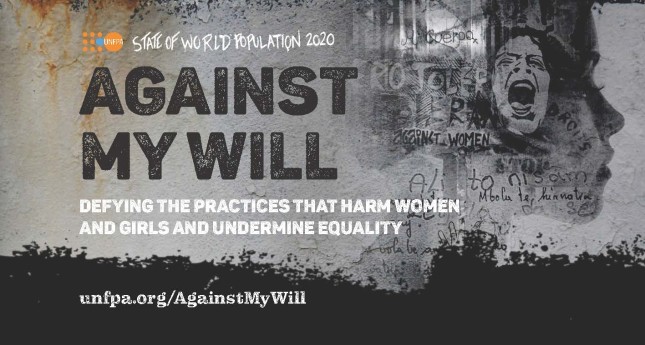
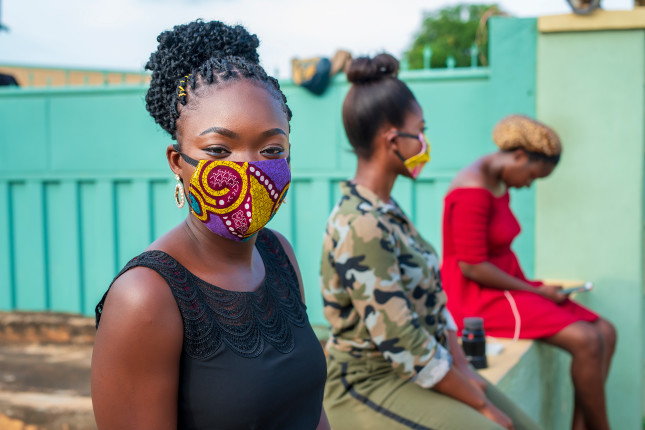
 “NCDs have raised the risk of and the severity of the COVID-19 infection,” says Dr. Belén Garijo, Executive Board Member and CEO of Healthcare at Merck KGaA Darmstadt, Germany, in this week’s Friday Podcast. Women living with NCDs
“NCDs have raised the risk of and the severity of the COVID-19 infection,” says Dr. Belén Garijo, Executive Board Member and CEO of Healthcare at Merck KGaA Darmstadt, Germany, in this week’s Friday Podcast. Women living with NCDs 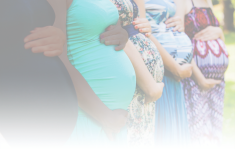
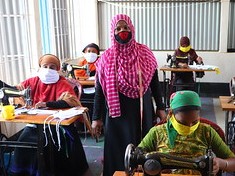 COVID-19 has wreaked havoc the world over, and recent data shows that the hardest hit will be the world’s women and girls and populations impacted by racism and discrimination. This week’s Friday Podcast highlights remarks from a recent Wilson Center
COVID-19 has wreaked havoc the world over, and recent data shows that the hardest hit will be the world’s women and girls and populations impacted by racism and discrimination. This week’s Friday Podcast highlights remarks from a recent Wilson Center 